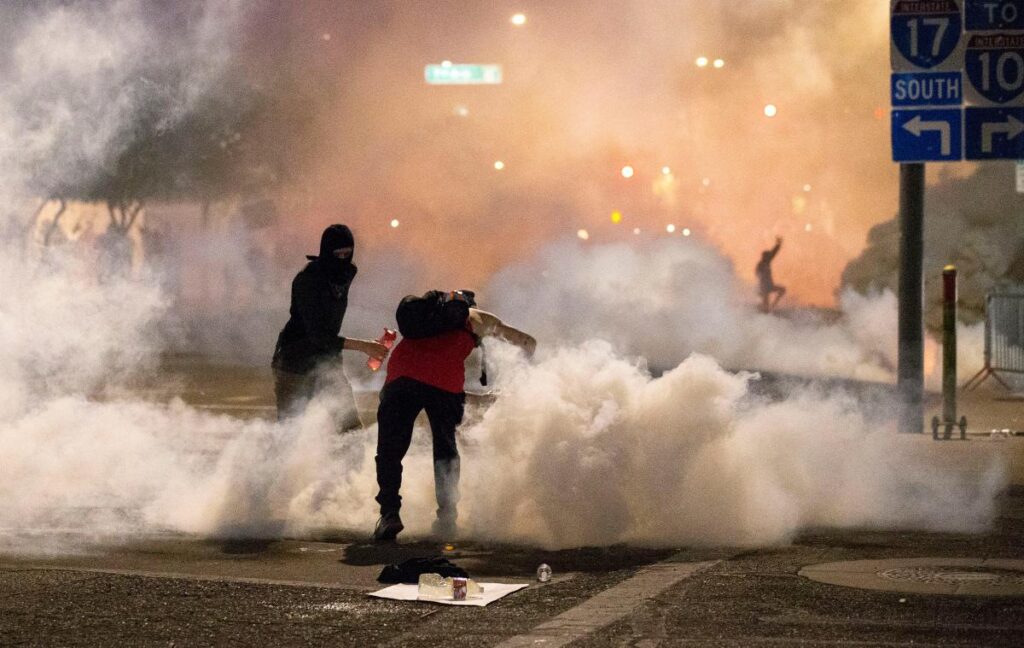After facing criticism from the U.S. Department of Justice, the Phoenix Police Department is revamping its policies for how officers handle protests and is seeking public input on its draft rules.
The First Amendment Facilitation and Management policy, also known as Operational Order 1.10, is designed to give both the public and the department a clear understanding of how police will manage large gatherings.
This is the first time the Phoenix Police Department will have a unified policy on dealing with protests and assemblies. Previously, the department’s guidance on protests was spread across operational orders.
Phoenix residents and business owners can provide feedback on the draft policy until Oct. 27.
The draft policies are available online in English and Spanish.
Readers can submit feedback by clicking on a button at the bottom of the draft.
In June, the Justice Department published a report that concluded Phoenix police violated the rights of protesters and targeted people who voiced anti-police messages.
One key finding was that police falsely arrested protesters on gang charges.
The Justice Department also reported that Phoenix officers failed to distinguish between peaceful and non-peaceful protesters, used stun bags and pepper spray indiscriminately, and arrested peaceful protesters to deter others.
What does the new Phoenix police policy on protests say?
According to the draft policy, the department will deploy trained officers to manage crowds at peaceful events, including parades, festivals and protests.
Those officers will be responsible for maintaining peace, preventing crime, arresting offenders, and protecting people and property.
When it comes to protests, officers will ensure that people can peacefully gather and speak freely while keeping everyone safe and maintaining order.
The policy also outlines three First Amendment rights that police must protect:
-
The right to free speech, including the right to criticize the police without retaliation.
-
The right to organize near the object of the protest so that the protest can be heard.
-
The right to observe and record police officers performing their duties in public spaces without facing retaliation.
The policy emphasizes that declaring assemblies unlawful should be rare and should only occur if there is a threat of violence or property damage. Before making such a declaration, efforts should be made to remove individuals engaging in unsafe behavior.
Officers are also encouraged under the draft policy to issue citations rather than detain individuals for offenses that qualify for citation.
What are the public safety teams identified in the policy?
The policy introduces two teams that will be deployed during protests.
The Public Safety Response Team will respond to large crowds and riots to protect lives and property, ensure safe movement around the city, and restore order.
This team will be made up of officers and supervisors who will take on these duties in addition to their normal jobs. Fire Department personnel will also be part of the team, overseen by the Downtown Operations Unit commander, according to police spokesperson Ryan Cody.
If a gathering or protest is declared a civil disturbance, the Public Safety Response Team will be called in, according to the draft policy.
The team must receive specialized training, although the policy does not specify what that training would involve.
The other team mentioned in the policy is the Incident Management Team, which consists of individuals from multiple departments. This team is formed as needed for large-scale planned and unplanned events, such as the Super Bowl or the Final Four, Cody said.
Reach the reporter [email protected].
This article originally appeared on Arizona Republic: The Phoenix Police Department wants public input on new protest policy
Read the full article here
